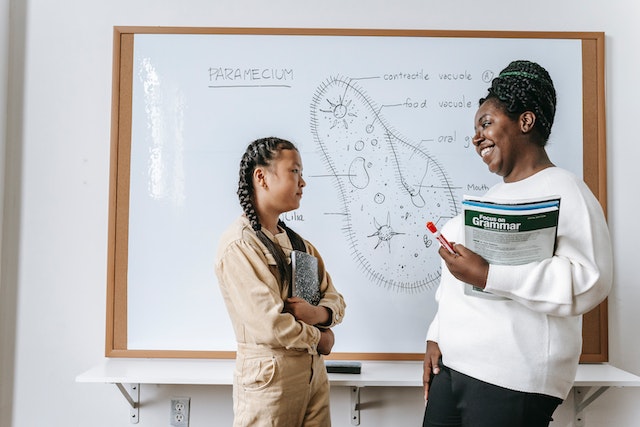MEANING
Adverbs are words that transform a verb, an adjective, or another adverb that talk about the manner, place, time, or degree. Adverbs also transform a phrase, a clause, or a sentence.
In the below-explained examples, the adverbs are marked in bold and the verb which it modifies is marked in italics.
Let us now dive into the topic!
For example:
- Kim has bad behaviour. (What kind of behaviour does Kim have?)
- She drank after the birthday party. (When did she drink?)
- Leon lives nearby. (Where does Leon live?)
Adverbs can also transform the verbs. (She is really slim), or other adverbs too (The laptop works really well).
- Modifying an adjective:
- She is really talented. (How talented is she?)
- That was extremely rude of you.
- Modifying another verb:
- She works extremely fast. (How fast does she work?)
- He drives moderately slow.
Adverbs can also transform the full sentence as well as a prepositional phrase too.
TYPES OF ADVERBS
ADVERBS OF MANNER
Adverbs of Manners tell us about the ‘happening’ of something; they can transform verbs and can give the answer to the question of ‘how’. We use the Adverbs of Manner with action verbs which are also known as Dynamic Verbs.
Let us take a look at some of the examples:
- He drives fast. (How does he drive?)
- They welcomed us happily. (How did they welcome us?)
- The driver drove fast. (How did the driver drive?)
ADVERBS OF PLACE
These types of adverbs tell us about the ‘where’ of something. Adverbs of Place transform verbs.
Let’s take a look at some examples:
- Please do not stand here. (Do not stand where?)
- They did not search at that place. (Where did they not search?)
- The bikes were not parked outside. (Where were the bikes not parked?)
ADVERBS OF TIME
Like the name says, adverbs of Time talks about the ‘time’ of something that happens. Mainly, they transform verbs and they answer the question of “when?”
Here are some of the examples:
- She ran just now. (When did she run?)
- He came later. (When did he come?)
Telling us about the frequency, Adverbs of Time can even answer the question of “how often?”.
- He delivers the milk every morning. (How often does he deliver the milk?)
- We watch a movie every Sunday. (How often do we watch movies?)
ADVERBS OF DEGREE OR QUANTITY
These kinds of adverbs tells about the degree/gravity to which something happens. The question answered here is “how much?” or to “what degree?”. Adverbs of degree can transform verbs, adjectives, and other adverbs.
Here are some examples:
- She is quite beautiful. (How beautiful is she?)
- I entirely agree with you. (To what extent do I agree with you?)
ADVERBS OF FREQUENCY
Adverbs of frequency tells us about ‘how often’ things happen.
For example:
- She has warned you twice
- We often tend to make mistakes.
- He has not participated once.
ADVERBS OF REASON
Here are some examples:
- Hence, he had to leave the office.
- Therefore, we couldn’t locate the place.
COMPARISON OF ADVERBS
Like Adjectives, some Adverbs have three levels of comparison, such as:
Slow Slower Slowest
Fast Faster Fastest
Hard Harder Hardest
- The dog ran faster (Comparative)
- The cat ran fastest of all. (Superlative)
Notice that Adverbs of Manner, Degree, and Time talk about comparison.
POSITION OF ADVERBS
Adverbs of Manner which gives an answer to ‘how’ are followed after the verb or the object.
- The boat is moving swiftly.
- The class completed the assignment carefully.
Adverb phrases of place and time are followed by verb or the object.
- The cats will come here.
- We searched everywhere.
- We will return tomorrow morning.
- She danced well on the stage.
When an adjective or another verb is transformed by an adverb, then the adverb will come prior to it.
- Veena is a rather intelligent girl.
- The cat was quite lazy.















